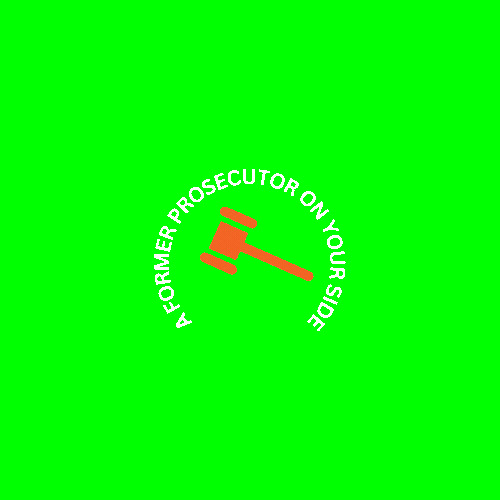Best Nursing Home Abuse Lawyers in Maryland
Share your needs with us, get contacted by law firms.
Free. Takes 2 min.
Or refine your search by selecting a city:
List of the best lawyers in Maryland, United States
About Nursing Home Abuse Law in Maryland, United States
Nursing home abuse is a significant concern for families and residents in Maryland. This area of law focuses on protecting the rights and well-being of elderly individuals living in nursing homes and long-term care facilities. Unfortunately, abuse can take many forms, including physical, emotional, sexual, and financial harm, as well as neglect. Maryland has established specific protections and legal remedies to address these issues and hold facilities accountable for failing to provide adequate care or for allowing abuse to occur. If you suspect nursing home abuse in Maryland, it's vital to understand your rights and the legal options available for pursuing justice and ensuring a safe environment for your loved one.
Why You May Need a Lawyer
Nursing home abuse cases are often complex and emotionally charged. Here are some common situations where legal help may be necessary:
- You suspect a loved one is being abused or neglected in a nursing home.
- The facility is not responsive to your complaints or concerns about care.
- Your loved one has unexplained injuries, emotional changes, or financial loss.
- You want to report suspected abuse to the proper authorities and ensure a thorough investigation.
- You wish to pursue compensation for injuries or losses resulting from abuse or neglect.
- You seek guidance on removing your loved one from a harmful environment and finding alternative care.
A lawyer experienced in Maryland nursing home abuse law can help you navigate these challenges, gather necessary evidence, work with state agencies, and represent your interests in negotiations or court proceedings.
Local Laws Overview
Maryland law offers robust protections for nursing home residents. The primary legal framework includes state and federal regulations, such as:
- Maryland's Health-Gen. Code Ann. § 19-343 through § 19-347, which outline residents' rights and protections within nursing homes.
- The Maryland Department of Health, Office of Health Care Quality, regulates nursing home licensing and investigates complaints of abuse and neglect.
- Mandatory reporting laws require healthcare providers and certain professionals to report any known or suspected abuse or neglect of vulnerable adults.
- Residents have the right to dignity, respect, safe living conditions, and freedom from abuse, as well as access to medical care and visitation.
- Victims and their families may pursue civil lawsuits for negligence, personal injury, wrongful death, or violation of consumer protection laws against nursing homes or staff members responsible for abuse.
- Criminal prosecution may also occur in serious abuse cases, with penalties under Maryland criminal law.
It is essential to act promptly due to statutes of limitations that place time restrictions on filing legal claims related to nursing home abuse in Maryland.
Frequently Asked Questions
What are common signs of nursing home abuse or neglect?
Warning signs include unexplained bruises, cuts, or injuries, sudden emotional withdrawal, poor hygiene, bedsores, weight loss, or missing personal belongings. Any drastic change in your loved one's behavior or physical condition should be taken seriously.
Who can report nursing home abuse in Maryland?
Anyone can report suspected nursing home abuse, but certain professionals including healthcare workers, social workers, and law enforcement are legally required to report abuse or neglect of a vulnerable adult.
How do I report suspected nursing home abuse in Maryland?
You can contact the Maryland Office of Health Care Quality or your local Adult Protective Services. In emergencies, always call the police.
Can I sue a facility for nursing home abuse?
Yes, victims and their families can file a civil lawsuit for damages resulting from abuse or neglect. A lawyer can guide you through the process and help you prove liability.
Is there a time limit for filing a lawsuit?
Yes, Maryland has statutes of limitations for these claims. Generally, you must file within three years of discovering the abuse or neglect. It is crucial to consult with an attorney as soon as possible.
What compensation might be available in a nursing home abuse case?
Compensation can cover medical bills, pain and suffering, relocation costs, emotional distress, and in some cases, punitive damages meant to punish egregious misconduct.
What should I do if a nursing home tries to prevent me from visiting or speaking with my loved one?
Nursing home residents have rights to visitors and open communication. If a facility restricts this without good reason, you may have grounds to complain to state authorities or seek legal intervention.
Can nursing home staff be held personally liable?
Yes, both the facility and individual staff members can be held liable for actions or inactions that result in abuse or neglect.
What if the resident cannot communicate or has dementia?
Even without direct communication, signs of distress, injuries, or neglect must be investigated. Family members and advocates can act on behalf of incapacitated residents to protect their interests.
How can I help prevent nursing home abuse?
Stay actively involved in your loved one's care, make regular unannounced visits, participate in care planning, and educate yourself about residents' rights and facility policies.
Additional Resources
For more information or assistance, you can turn to the following Maryland resources:
- Maryland Office of Health Care Quality: Investigates complaints and oversees nursing home standards.
- Maryland Department of Aging: Offers advocacy for the elderly and support for families.
- Maryland Long-Term Care Ombudsman Program: Advocates for nursing home residents and investigates complaints.
- Maryland Adult Protective Services: Responds to reports of abuse or neglect of vulnerable adults.
- Local county health departments and law enforcement agencies.
Next Steps
If you believe your loved one has been subjected to nursing home abuse in Maryland, take the following steps:
- Ensure your loved one's immediate safety and seek medical attention if necessary.
- Document any signs of abuse or neglect, including photographs, medical records, and written notes.
- Report your concerns to the relevant state or local agencies, such as the Office of Health Care Quality or Adult Protective Services.
- Consult with a lawyer experienced in Maryland nursing home abuse cases to discuss your legal options and rights.
- Continue to advocate for your loved one and follow up on investigations or legal actions taken.
Early intervention can prevent further harm and lead to accountability for those responsible. Professional legal assistance ensures your loved one receives the protection and justice they deserve.
Lawzana helps you find the best lawyers and law firms in Maryland through a curated and pre-screened list of qualified legal professionals. Our platform offers rankings and detailed profiles of attorneys and law firms, allowing you to compare based on practice areas, including Nursing Home Abuse, experience, and client feedback.
Each profile includes a description of the firm's areas of practice, client reviews, team members and partners, year of establishment, spoken languages, office locations, contact information, social media presence, and any published articles or resources. Most firms on our platform speak English and are experienced in both local and international legal matters.
Get a quote from top-rated law firms in Maryland, United States — quickly, securely, and without unnecessary hassle.
Disclaimer:
The information provided on this page is for general informational purposes only and does not constitute legal advice. While we strive to ensure the accuracy and relevance of the content, legal information may change over time, and interpretations of the law can vary. You should always consult with a qualified legal professional for advice specific to your situation.
We disclaim all liability for actions taken or not taken based on the content of this page. If you believe any information is incorrect or outdated, please contact us, and we will review and update it where appropriate.
Browse nursing home abuse law firms by city in Maryland
Refine your search by selecting a city.










